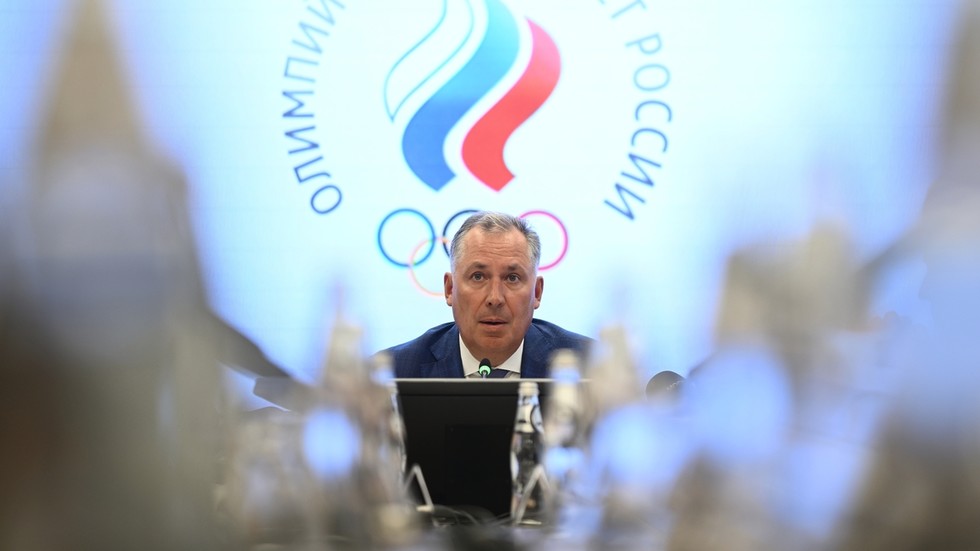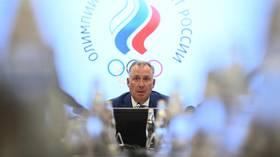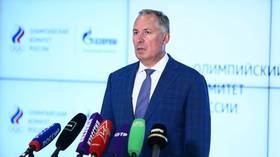
Russian officials are in South Korea for an assembly of the Association of National Olympic Committees (ANOC)

Pozdnyakov is playing a part at the meeting in Seoul. © RIA Novosti / Vladimir Astapkovich
A Russian delegation has arrived for an assembly of the Association of National Olympic Committees (ANOC) in South Korea, determined to play a full part in proceedings despite boycott threats from some Western countries.
Russian Olympic Committee (ROC) president Stanislav Pozdnyakov is heading the group from his country which is attending the ANOC General Assembly being held in Seoul from October 18 to 21.
The ROC shared images of early proceedings on its Telegram channel on Tuesday, writing: “The delegation of the Russian Olympic Committee is taking part in person in the work of the XXVI General Assembly of the Association of National Olympic Committees (ANOC) in Seoul.
“ROC President Stanislav Pozdnyakov is participating in the meeting of the ANOC Executive Committee right now.”
Officials from the ROC and the National Olympic Committee of the Republic of Belarus (NOCRB) have not been directly sanctioned by the International Olympic Committee (IOC), despite the global governing body recommending a ban on all athletes from the two countries because of the conflict in Ukraine.
The Russian and Belarusian presence in Seoul has triggered an angry reaction from some quarters, with Latvia threatening a direct boycott while a number of Western counterparts have expressed their dissatisfaction, according to Inside the Games.
However, ROC president Pozdnyakov stressed earlier this month that his organization has remained in regular contact with the IOC, even in the face of the controversial sanctions imposed against Russian athletes across numerous sports.
“Interaction with the IOC has not stopped for a day since February 24. We are full participants in the Olympic movement, which cannot be said about our athletes yet,” Pozdnyakov said last week.

IOC president Thomas Bach indicated to Italian media in September that his organization could reverse its recommendation for a ban on Russian and Belarusian athletes, but only if they were willing to “distance themselves” from the actions of their governments.
Pozdnyakov later criticized those remarks as allowing politics to further undermine sport, but said he would raise the issue of the return of Russian athletes at the ANOC assembly – in particular regarding the Paris 2024 Olympic Games.
“We see that our voices, one way or another, are beginning to be heard,” the former Olympic fencing champion previously said of his attendance in South Korea.
More than 200 National Olympic Committees (NOC) are expected to take part in the ANOC General Assembly this week, with most delegations attending in person.




